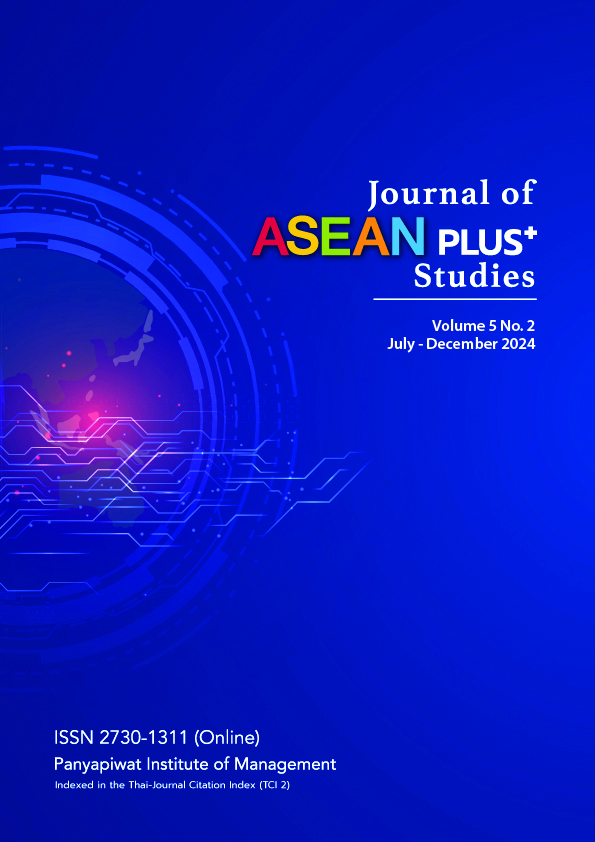An Investigation into the Influence of Emotional Labor on Task Performance: A Case Study of Bank Tellers in Handan City
Keywords:
Emotional Labor, Task Performance, Emotional Regulation, Self-EfcacyAbstract
This study is dedicated to a deep exploration of the relationship between
emotional labor and task performance among frontline employees in commercial banks in Handan City. Through empirical research methods, it comprehensively examines the interactions among emotional labor, emotional regulation self-efficacy, and task performance, aiming to provide theoretical guidance for the management of emotional labor and task performance in grassroots banks. Data were collected via an online survey of bank tellers in Handan City, receiving 462 questionnaires, of which 403 were valid. The data were analyzed using SPSS 21. The study set four objectives: 1) to systematically assess the direct impact of emotional labor on employee task performance; 2) to explore the mediating role of emotional regulation self-efficacy between emotional labor and task
performance; 3) to construct and validate a theoretical model of the relationships among emotional labor, emotional regulation self-efficacy, and task performance; 4) to propose specific strategies and recommendations for managing emotional labor. The findings indicate that emotional labor positively affects task performance and emphasizes the significant mediating role of emotional regulation self-efficacy. This offers a new perspective for understanding the complex relationship between emotional labor, emotional regulation self-efficacy, and task performance and provides practical management strategies for enhancing employee performance. The discoveries of this study not only enrich the theoretical foundation in the field of emotional labor but also guide the management practices in grassroots banks. By effectively managing emotional labor, these institutions can improve employee task performance, optimize customer service experience, and enhance the performance of the banking business.
References
Bandura, A. (1977). Self-efficacy: Toward a unifying theory of behavioral change. Psychological Review, 84(2), 191-215. https://doi.org/10.1037/0033-295X.84.2.191
Bandura, A. (1986). Social foundations of thought and action: A social cognitive theory.Prentice Hall.
Bandura, A. (1997). Self-efficacy: The exercise of control. Henry Holt & Co.
Bandura, A., Caprara, G. V., Barbaranelli, C., Gerbino, M., & Pastorelli, C. (2003). Role of affective self‐regulatory efficacy in diverse spheres of psychosocial functioning. Child Development, 74(3), 769-782.
Befort, N., & Hattrup, K. (2003). Valuing task and contextual performance: Experience, job roles, and ratings of the importance of job behaviors. Applied H.R.M. Research, 8(1), 17-32.
Borman, W. C., & Motowidlo, S. J. (1993). Personnel selection in organizations. Jossey-Bass.
Caprara, G. V., Di Giunta, L., Eisenberg, N., Gerbino, M., Pastorelli, C., & Tramontano, C. (2008). Assessing regulatory emotional self-efficacy in three countries. Psychological Assessment, 20(3), 227.
Diefendorff, J. M., Croyle, M. H., & Gosserand, R. H. (2005). The dimensionality and antecedents of emotional labor strategies. Journal of Vocational Behavior, 66(2), 339-357.
Downes, P. E., Crawford, E. R., Seibert, S. E., Stoverink, A. C., & Campbell, E. M. (2021). Referents or role models? The self-efficacy and job performance effects of perceiving higher performing peers. Journal of Applied Psychology, 106(3), 422-438.
Grandey, A. A. (2000). Emotion regulation in the workplace: A new way to conceptualize emotional labor. J Occup Health Psychol, 5(1), 95-110. https://doi.org/10.1037//1076-8998.5.1.95
Grandey, A. A. (2003). When “the show must go on”: Surface acting and deep acting as determinants of emotional exhaustion and peer-rated service delivery. Academy of Management Journal, 46(1), 86-96.
Han, Y., & Liao, J. (2006). Study on the impact of performance separation on task performance and relationship performance. Industrial Engineering, 9(4), 49-53.
Hochschild, A. R. (1979). Emotion work: Feeling rules and social structure. American Journal of Sociology, 85(3), 555-575.
Hwang, W. J., & Park, E. H. (2022). Developing a structural equation model from Grandey’s emotional regulation model to measure nurses’ emotional labor, job satisfaction, and job performance. Appl Nurs Res, 64, 151557. https://doi.org/10.1016/j.apnr.2021.151557
Kuo, T. M., Tsai, C. C., & Wang, J. C. (2021). Linking web-based learning self-efficacy and learning engagement in MOOCs: The role of online academic hardiness. The Internet and Higher Education, 51, 100819. https://doi.org/10.1016/j.iheduc.2021.100819
Peifer, C., Schonfeld, P., Wolters, G., Aust, F., & Margraf, J. (2020). Well done! Effects of positive feedback on perceived self-efficacy, flow and performance in a mental arithmetic task.Front Psychol, 11, 1008. https://doi.org/
3389/fpsyg.2020.01008
Williams, L. J., & Anderson, S. E. (1991). Job satisfaction and organizational commitment as predictors of organizational citizenship and in role behaviors. Journal of Management,17(3), 601-617.https://doi.org/
1177/014920639101700305
Wu, P. J. (2003). The influencing factors of emotional labor and its outcomes: A case study of frontline service personnel in banks [Master’s thesis]. National Chengchi University. Taiwan.






